Your cart is currently empty!


If you’re looking for a fertility treatment that offers the highest success rate, Intracytoplasmic Sperm Injection (ICSI) in India may be the right choice. This guide offers an overview of ICSI treatment in India, including what ICSI cycles involve and costs and available fertility clinics.
ICSI, or Intracytoplasmic Sperm Injection, is one of the most advanced fertility treatments available in India today. This treatment involves injecting a single sperm into an egg to fertilize it and then transferring the fertilized embryo into the uterus for successful conception. ICSI offers high success rates for couples with male infertility issues due to its ability to bypass any blockages in the sperm’s journey from the testicles to the egg. It also improves the chances of conceiving if traditional IVF fails.
It is difficult to determine the “best” ICSI treatment in India, as there are many reputable clinics and doctors offering the procedure. Some factors to consider when looking for a clinic or doctor for ICSI treatment include the success rates of the clinic, the qualifications and experience of the doctors, and the overall reputation of the clinic. Additionally, it is important to research the cost of treatment, as this can vary significantly between clinics. It is recommended to consult with a fertility specialist and get a second opinion before making a decision.
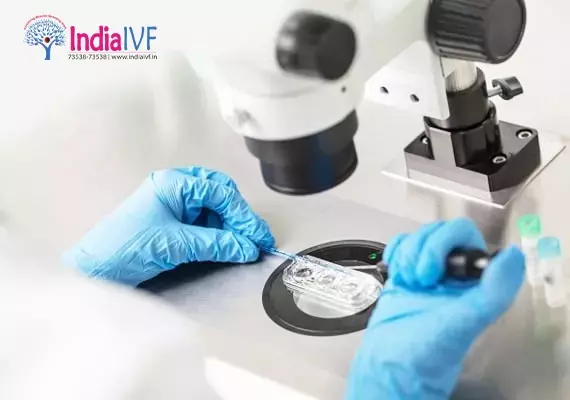
Intracytoplasmic sperm injection (ICSI) is a procedure used in in-vitro fertilization (IVF) treatment where a single sperm is injected directly into the cytoplasm of an egg. This procedure is often used when there are issues with sperm count or quality, or when previous IVF attempts have failed. The procedure typically takes place in a fertility clinic and is performed by a specialist doctor.
The procedure begins with ovarian stimulation to produce multiple eggs. The eggs are then retrieved, one sperm is selected and injected directly into the cytoplasm of each egg using a special microscope and a very fine needle. The fertilized eggs are then placed in an incubator to grow for a few days.
The procedure is done under a microscope and a fine needle is used for injection. The fertilized eggs are then placed back into the womb.
In India, ICSI treatment cost varies from INR 25,000 to INR 35,000 depending on the clinic and the location.
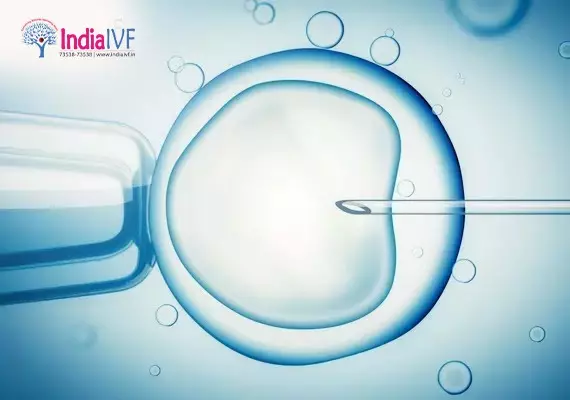
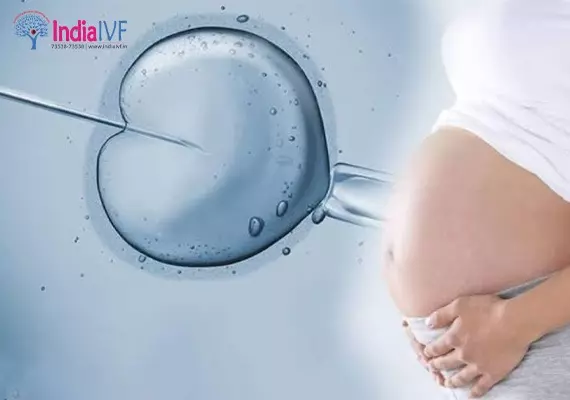
ICSI (Intracytoplasmic Sperm Injection) treatment is typically recommended for couples who have been unable to conceive through traditional IVF (in vitro fertilization) methods, or for individuals with male factor infertility. This may include men with low sperm count, poor sperm motility, or abnormally shaped sperm. Additionally, ICSI can also be used in cases where there is a history of failed fertilization in previous IVF cycles or for genetic disorders that can be passed on through sperm or in females with hard egg shells such as PCOD.
Intracytoplasmic sperm injection (ICSI) is a fertility treatment that involves injecting a single sperm directly into an egg. Some advantages of ICSI include:
Overall, ICSI is a highly successful technique that can help couples with male infertility or genetic issues have a baby.
There are several reasons why India IVF may be considered the best ICSI (Intracytoplasmic Sperm Injection) centre in India. Some of these reasons include:
It’s worth noting that India IVF is just one of many ICSI clinics in India and it’s important to thoroughly research and consult with multiple clinics before making a decision.
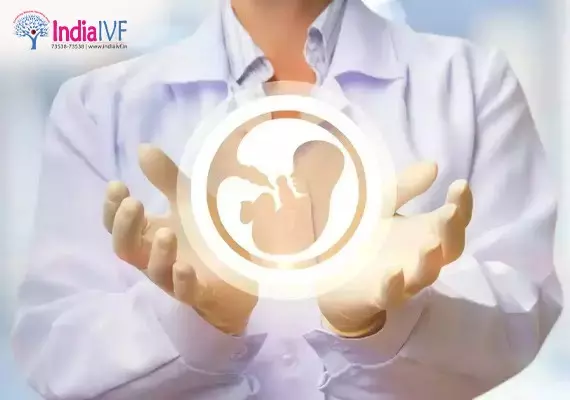
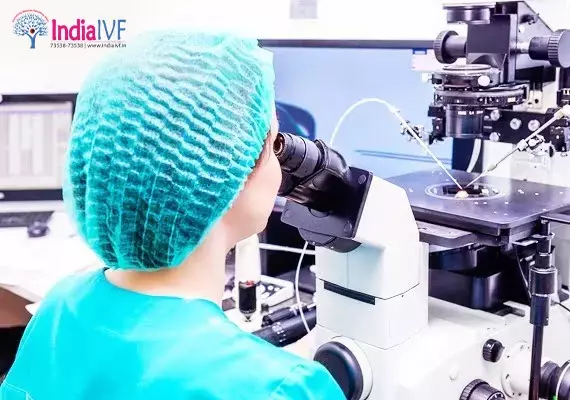
The success rate of ICSI (Intracytoplasmic Sperm Injection) varies depending on a number of factors, including the age of the female partner, the cause of infertility, and the quality of the sperm being used. In general, the success rate for ICSI is around 80-90% per cycle, and the chances of having a baby increase with each additional cycle. It’s also worth noting that ICSI is typically used in cases of severe male infertility, and success rates may be lower than with other forms of assisted reproductive technology. It’s best to discuss the specific success rates for your situation with a fertility specialist.
The cost of ICSI (Intracytoplasmic Sperm Injection) in India can vary depending on the clinic and location. On average, it can range from around INR 25,000 to 35,000 per cycle. It’s important to note that this cost may not include additional expenses such as medication, genetic testing, and other related procedures. It is always recommended to consult with a local fertility clinic to get an accurate estimate for the cost of ICSI in your specific location.
Intracytoplasmic sperm injection (ICSI) is a procedure used in in-vitro fertilization (IVF) to treat infertility caused by problems with sperm. While it is typically used to address male infertility, it may also be used in cases where there is a low number of sperm or poor sperm quality. If there is no issue of male infertility, it may not be necessary to use ICSI. It is best to speak with a fertility specialist to determine if ICSI is the best option for your specific situation.
Intracytoplasmic sperm injection (ICSI) is a technique used in in vitro fertilization (IVF) to fertilize an egg by injecting a single sperm directly into the egg. IVF is a process in which eggs are removed from a woman’s ovaries and fertilized with sperm in a laboratory inside a dish. ICSI is used when there is a low sperm count or poor sperm motility, as it allows for the fertilization of an egg with a single sperm. IVF, on the other hand, can be done with normal sperm count and motility as well.
The ICSI (Intracytoplasmic Sperm Injection) process typically takes a few hours to one day. On the first day, the sperm and eggs are collected and prepared. On the second day, the eggs are fertilized using the ICSI technique. However, this is only the time needed for the procedure itself and the time it takes to get to the point of ICSI will depend on various other factors such as the testing and preparation needed before the procedure. Typically a full IVF cycle can take between 4-6 weeks.
The amount of sperm needed for ICSI (Intracytoplasmic Sperm Injection) is typically just a small number of sperm, as only one sperm is needed for each egg that is being fertilized. A small sample of semen is usually collected and then a single sperm is carefully selected and injected directly into the egg using a microscopic needle. The procedure is typically performed in a laboratory setting and is done under the guidance of a trained embryologist.
IVF and ICSI are both forms of assisted reproductive technology (ART) used to treat infertility. IVF (in vitro fertilization) involves retrieving eggs from a woman’s ovaries and fertilizing them with sperm in a laboratory dish. ICSI (intracytoplasmic sperm injection) is a variation of IVF in which a single sperm is injected directly into an egg.
In terms of success rates, ICSI may be more successful than IVF in cases where the male partner has a low sperm count or poor sperm quality. However, in general, the success rates of IVF and ICSI are similar and depend on many factors, including the woman’s age, the cause of infertility, and the clinic performing the procedure. It’s best to consult with a fertility specialist to determine which treatment is best for your individual case.
At India IVF Clinics we provide the most comprehensive range of services to cover all the requirements at a Fertility clinic including in-house lab, consultations & treatments.